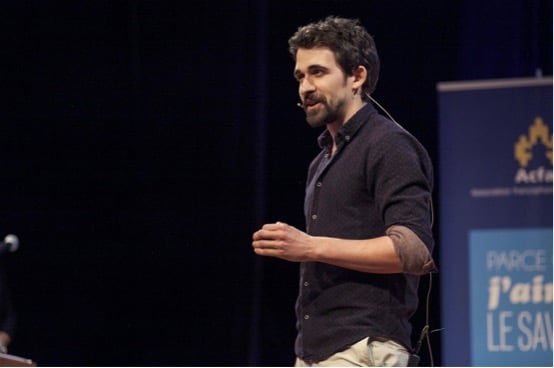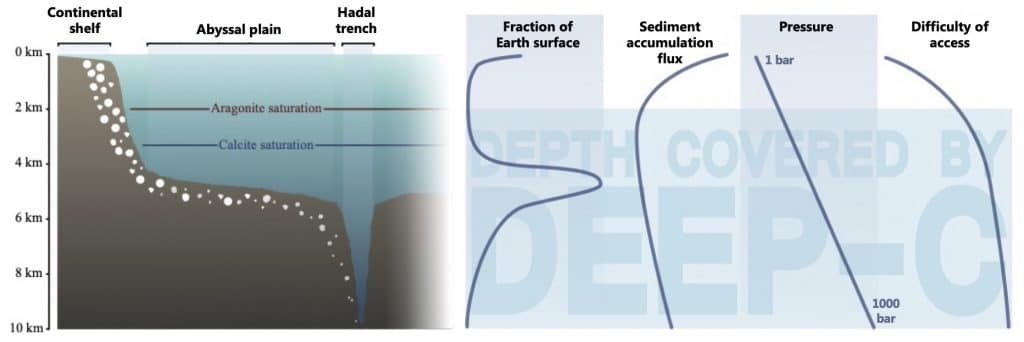As the climate change crisis intensifies, it is imperative to understand and mitigate carbon dioxide (CO2). A lesser-known yet important aspect of this crisis is the role played by the vast expanses of marine sediment that cover two-thirds of the Earth's surface.
A key component of these sediments is calcium carbonate (CaCO3), a family of minerals that make up the shells and skeletons of marine organisms. Emissions of CO2 lead to acidification of the oceans, triggering the dissolution of CaCO3 which, in turn, neutralises the CO2acting as a sink for CO2 crucial on timescales of thousands of years.
However, the mechanisms and rate of this dissolution remain unknown due to the challenges posed by the high pressures of the deep ocean and the elusive bacterial communities involved in the dissolution process.
The Deep-C project aims to understand the dissolution of CaCO3 in deep waters, paving the way for a deeper understanding and potential mitigation of the impacts of climate change. Focusing on the abyssal and hadal domains, this innovative research aims to unveil the nature and dissolution rate of CaCO3 using high-pressure reactors.
These reactors, which simulate the pressure and temperature of deep-sea environments, provide a solid alternative to field studies. Thanks to the integration of state-of-the-art sensors and the use of advanced CaCO3In this way, we will generate accurate, continuous data on the biogeochemical processes underway. By housing bacterial cultures in the reactors, alongside grains of CaCO3 This project will explore the mechanisms of dissolution.
The results will be used to refine a global biogeochemical model, leading to a better understanding of the ocean's role in carbon sequestration and advancing global efforts to effectively mitigate climate change.
Olivier Sulpis is a CNRS research fellow based at CEREGE in Aix-en-Provence.
D. in aquatic geochemistry from McGill University in Montreal. He then worked as a research associate at the University of Utrecht in the Netherlands.
Olivier specialises in the dissolution of marine sediments in the Anthropocene. Alongside his fundamental research, Olivier has worked with a number of international organisations implementing ocean alkalinisation methods to increase the ocean's capacity to capture CO2and new sources of offshore renewable energy.
In addition to his research, Olivier teaches at the University of Aix-Marseille, to give the younger generation the tools they need to accelerate the transition to energy and the environment.
In parallel with the Deep-C project, Olivier is co-leader of a working group with the Centre de Synthèse et d'Analyse sur la Biodiversité on marine gastropods, as well as a working group with the Conseil Maritime Européen on the evaluation of CO2 by the ocean.



